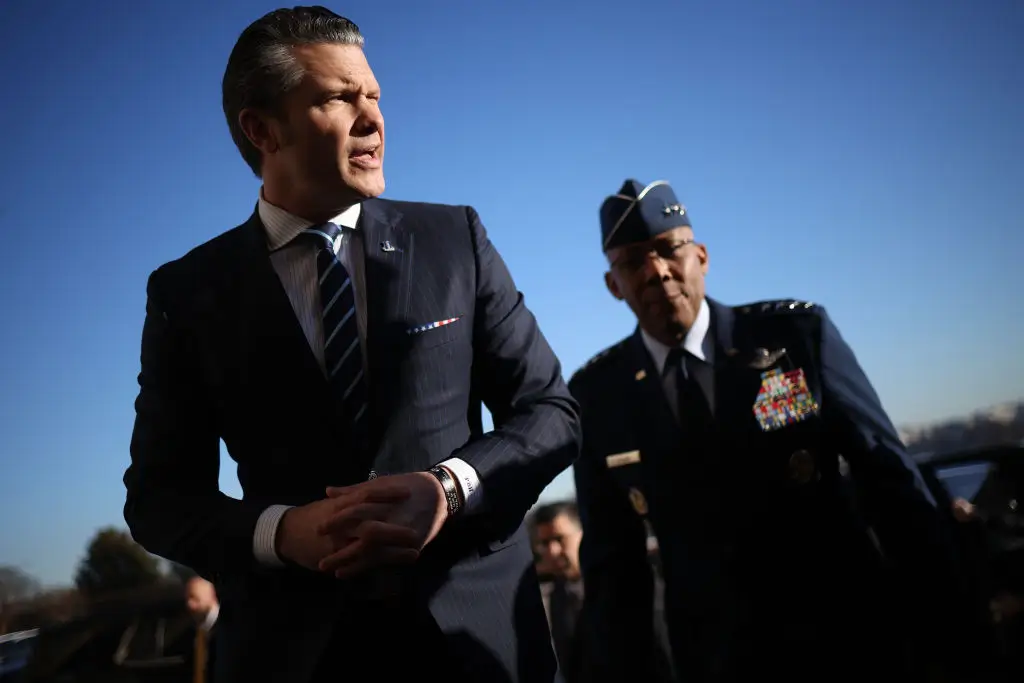‘This Is So Targeted and Intentional’: New U.S. Military Grooming Policy Is ‘Racist,’ Singles Out Black Servicemembers, Critics Say
Several branches of the United States military have changed their policies governing pseudofolliculitis barbae, or PFB, a painful skin condition more commonly known as razor bumps or ingrown hairs, which affects more Black men than any other group.
Now critics accuse the military of targeting Black men with the condition, even as past studies have shown those with medical waivers allowing them to have short beards were already lagging behind in promotions compared to their non-waivered counterparts.
In March, the U.S. Marine Corps issued new guidance on its shaving waivers that could result in the expulsion of service members with a recurring condition of PFB. The Air Force and Space Force also updated their guidance on grooming waivers in January.

All men in the military are required to have a clean shave unless they receive a medical waiver.
Defense Secretary Pete Hegseth issued a review of physical fitness and grooming standards, leading to the shaving waiver rollback in March.
The new Marine Corps guidance requires medical evaluations of service members with PFB within 90 days, NBC News reported. If they continue to suffer from PFB within a year of undergoing a four-part treatment plan, their commanding officer can initiate a separation plan. The Air Force’s new guidance says shaving waivers will only last 90 days after an airman’s annual medical evaluation.
“This is so targeted and intentional,” Chris Adigun, a North Carolina-based board-certified dermatologist, told NBC News. “Razor bumps can affect only the way hair follicles appear and do not affect the body systemically in any way.”
That’s because the way hair grows is determined by genetics, not by any particular way a person shaves or any other extraneous conditions. Razor bumps do not impact how a military member performs their job.
“On its face, it’s a racist policy, because this is a condition that impacts African Americans and other people of color predominantly just by the nature of hair growth on the face,” another dermatologist told NBC.
Some see these changes as part of the federal government’s ongoing effort at dismantling diversity, equity and inclusion policies. Black service members make up 18 percent of all active-duty Marines, according to the Marine Corp Gazette.
“It’s mostly soldiers of color who are impacted by this,” Air Force veteran Ed Anderson told NBC News. “I don’t see this as a productive and effective means of retaining and recruiting troops.”
The American Osteopathic College of Dermatology says razor bumps resulting from shaving affect 60 percent of African-American men and other people with curly hair. The condition can cause severe and painful scarring. The AOCD says letting the beard grow is a 100 percent effective treatment for PFB.
And the U.S. military agreed, at least for a time. Starting in 1970, it allowed beards for those suffering certain medical conditions, such as PFB. And the shaving waivers were a game changer for these members, but policies have changed over the years across the different branches
The possible dismissal of service members over PFB is a “dramatic” change, Indiana-based board-certified dermatologist Dara Spearman told NBC.
“Given the historic interactions between Black Americans and organizations with regard to grooming habits and requirements, it seems there may be other factors at play than whether a gas mask fits,” Spearman said.

